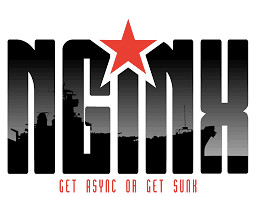Not that many of us got to listen to Dr. Walter Kaufmann talk about his workflows when translating Nietzsche. Translating is not simply transcribing. With Nietzsche's uber-mensch: to what should he map that? Many scholars went with super, creating "superman", in name collision with the comics and superhero complexes. Kaufmann went with over, as in oversight, with "overseer" so similar to "supervisor" in English, with the former sounding more antiquarian, though we often speak of providing oversight (supervision).
Switching gears a little, we teach children about synonyms and homonyms. Synonyms "mean" alike whereas homonyms "sound" alike and may (usually do) "mean" quite different things, as with "vain" and "vane" (and "vein"). However, more confusing if not sufficiently discussed, are different meanings of the very same word, often with bridging connotations.
Probably the biggest difference experience makes is it potentially deepens one's appreciation for context and the limited scope (or radius) of any specific meaning. For example, the technical word "vector" tends to mean "some permutation of dialed in values" such as (apple, pear, pear), but then takes on more distinctly geometrical properties in some language games. In Clojure, a LISP-like computer language targeting the JVM (Java Virtual Machine), Vector is one of the core data structures, along with Lists.
Change channels to Python and Vectors drop away as a core data structure with Python's Lists taking their place, then having tuples as an immutable type whereas in Clojure all collections are immutable.
Readers of Computer Science have more context i.e. more space, for words to wander, yet within constraints. The meaning disease monitoring and control experts have for "vector" is another one yet. An influenza might travel by bird, malaria by mosquito, such that infected or host species become "vectors" (enabling media) for some pathogen.
And yet all of these meanings of Vector convey the notion of momentum / inertia in some direction, against a backdrop, and therefore deltas (differences). Even the lowly permutation, like a one armed bandit readout in a casino, may be seen to converge or diverge from specific (as in "winning") patterns, thereby defining a notion of movement through distance, perhaps purposeful movement, within some "vector field".
Ironically, I managed to miss the themed intra-OSCON party event, the night tutorials end. This year that theme was superheros.
Tim O'Reilly talked about augmentation; Amber about the fears that come with new tech, concerns about differences and disparities. If we're all privileged, that's different. We're each super in different ways. Lets not forget "extreme" as in "radical" which is rooted in "root". We're each "root" in our own system, would by a geeky thing to say.
Uber has been considered a disruptive technology in the Greater Portland sphere, but then in geekdom, "disruptive", like "hacker" and "lazy" tend to have positive spin. Geekdom, a subculture, has its own lingo -- so again, back to namespaces and their vectors (of propagation).
Switching gears a little, we teach children about synonyms and homonyms. Synonyms "mean" alike whereas homonyms "sound" alike and may (usually do) "mean" quite different things, as with "vain" and "vane" (and "vein"). However, more confusing if not sufficiently discussed, are different meanings of the very same word, often with bridging connotations.
Probably the biggest difference experience makes is it potentially deepens one's appreciation for context and the limited scope (or radius) of any specific meaning. For example, the technical word "vector" tends to mean "some permutation of dialed in values" such as (apple, pear, pear), but then takes on more distinctly geometrical properties in some language games. In Clojure, a LISP-like computer language targeting the JVM (Java Virtual Machine), Vector is one of the core data structures, along with Lists.
Change channels to Python and Vectors drop away as a core data structure with Python's Lists taking their place, then having tuples as an immutable type whereas in Clojure all collections are immutable.
Readers of Computer Science have more context i.e. more space, for words to wander, yet within constraints. The meaning disease monitoring and control experts have for "vector" is another one yet. An influenza might travel by bird, malaria by mosquito, such that infected or host species become "vectors" (enabling media) for some pathogen.
And yet all of these meanings of Vector convey the notion of momentum / inertia in some direction, against a backdrop, and therefore deltas (differences). Even the lowly permutation, like a one armed bandit readout in a casino, may be seen to converge or diverge from specific (as in "winning") patterns, thereby defining a notion of movement through distance, perhaps purposeful movement, within some "vector field".
Ironically, I managed to miss the themed intra-OSCON party event, the night tutorials end. This year that theme was superheros.
Tim O'Reilly talked about augmentation; Amber about the fears that come with new tech, concerns about differences and disparities. If we're all privileged, that's different. We're each super in different ways. Lets not forget "extreme" as in "radical" which is rooted in "root". We're each "root" in our own system, would by a geeky thing to say.
Uber has been considered a disruptive technology in the Greater Portland sphere, but then in geekdom, "disruptive", like "hacker" and "lazy" tend to have positive spin. Geekdom, a subculture, has its own lingo -- so again, back to namespaces and their vectors (of propagation).


